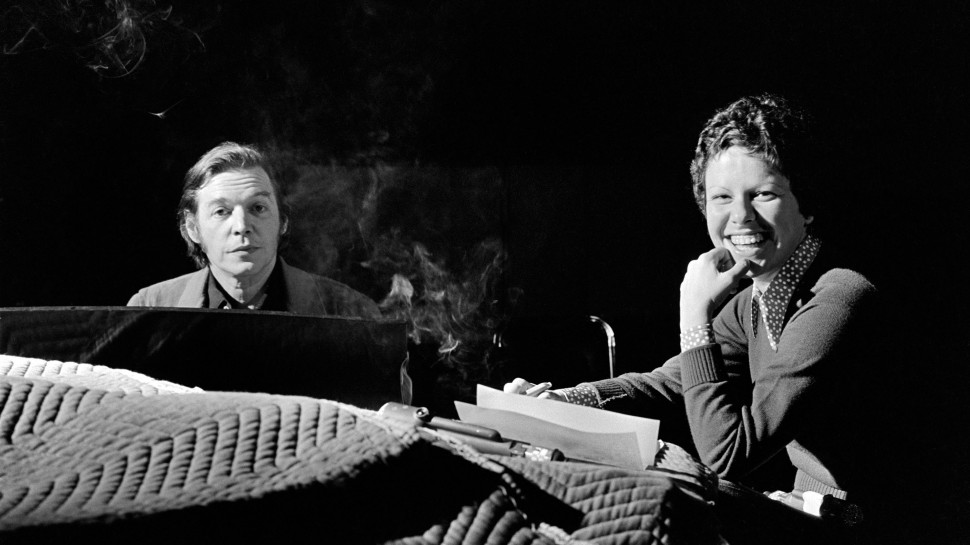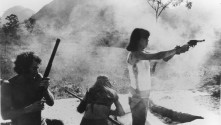



Nelson Pereira dos Santos, Cinema Novo and Beyond
It would be impossible to overestimate the tremendous influence of Nelson Pereira dos Santos (b. 1928) over the dramatic course of modern Brazilian cinema. Throughout his incredibly prolific and ongoing career spanning almost half a century, dos Santos has steadfastly dedicated himself to a mode of politically engaged yet populist cinema diversely embodied in such classic works as his stirring city symphony, Rio 100 Degrees, his stark neorealist classic Barren Lives and his ribald tropicalismo masterpiece How Tasty Was My Little Frenchman. Sharing the daring stylistic innovation that is one of dos Santos' signatures, these truly landmark films offer unusually frank explorations of once taboo socio-political issues – class inequity, poverty, racism – using real non-studio locations from Rio's sprawling favelas to the remote and barren Northeast region and local dialects to present an unvarnished and authentic vision of Brazil from notably distinct perspectives. While Barren Lives reveals dos Santos' consummate skill adapting great literature for the screen, How Tasty Was My Little Frenchman is a showcase of his utterly fearless and ambitious address of the complexities of Brazilian culture and history, here the history and legacy of colonialism. Spanning an extraordinary range of styles and genres – from neorealist documentary to avant-grade counter cinema, from science-fiction to historical bio-pic to anthropological documentary – dos Santos' remarkable oeuvre is united by his striving to define a kind of a national cinema able to inspire Brazilian and international audiences alike.
Born in São Paulo into an intensely cinephilic family of originally Italian decent, dos Santos did not discover his vocation as a filmmaker until after completing his university studies in law and next working as a journalist. After a brief apprenticeship in the commercial cinema, dos Santos landed his first feature, Rio 100 Degrees which instantly placed him at the very heart of a raging debate in Brazil about the ideological and cultural responsibility of the cinema and popular arts to represent the nation, with dos Santos accused by both the Communist Left and conservative Right of betraying the "official" image and ideal of Brazil. This experience and a period studying and traveling in Europe convinced dos Santos of the need to remain resolutely independent in style and spirit from any official doctrine, an attitude that would inform all of his work as a director and screenwriter. For his steadfast dedication to a kind of neorealist practice, for his uncompromising independence as a director and producer, but above all for his restless search for quintessentially Brazilian subjects, dos Santos is credited with paving the way for the efflorescence of the Cinema Novo movement in the 1960. Indeed, young Cinema Novo directors such as Glauber Rocha and Joaquim Pedro de Andrade revered dos Santos as their spiritual leader and senior statesman, and habitually referred to his films as a major touchstone for their own work.
Offering a rare opportunity to look beyond dos Santos' best known films, this retrospective celebrates the incredible diversity of his oeuvre by including such rarely screened work such as his hilarious comic satire El justicero, his avant-garde Hunger for Love and his zany science-fiction fantasy Who is Beta? The Harvard Film Archive is honored to welcome and pay tribute to one of the legendary figures of Latin American cinema. – Haden Guest




















